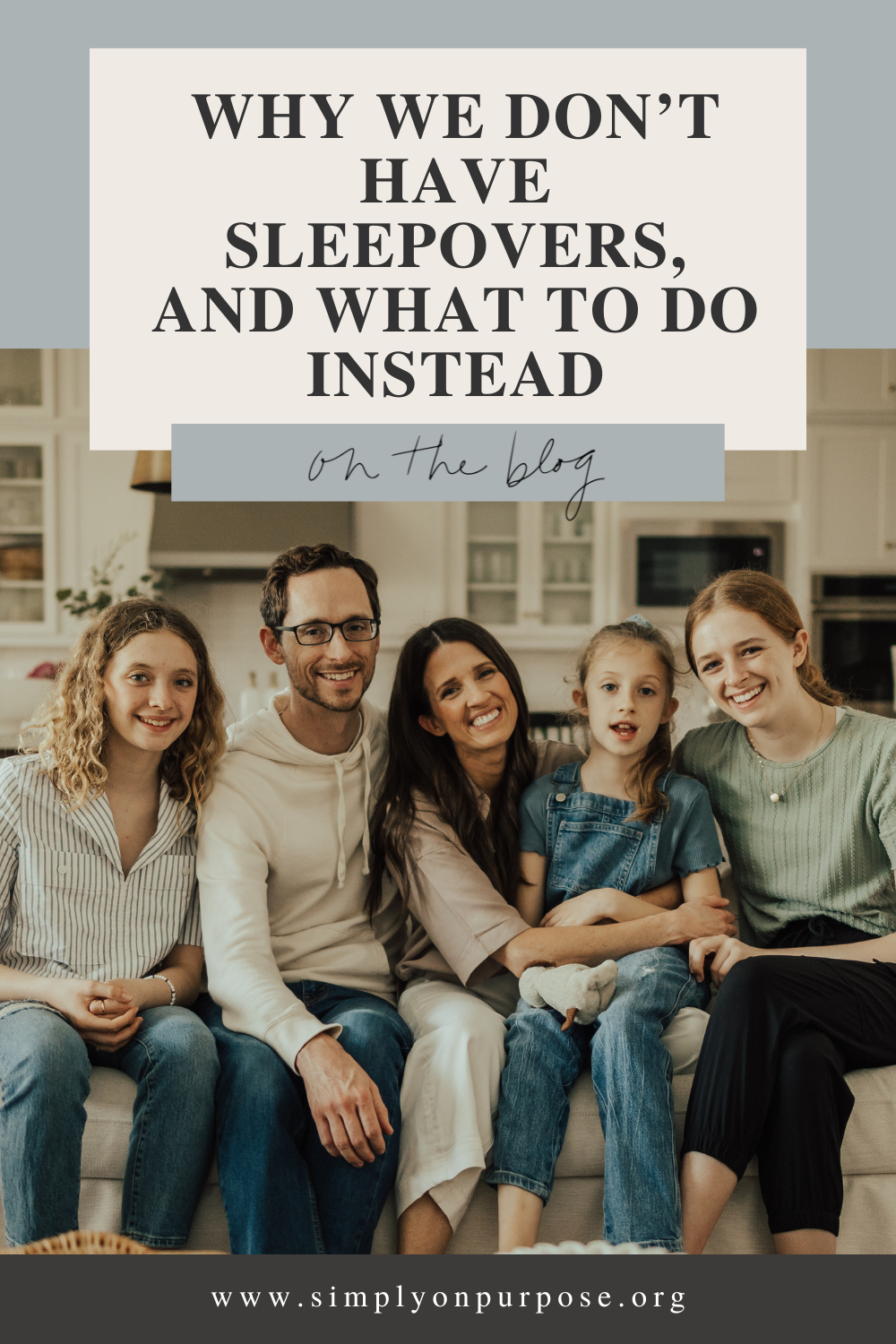I know this might be a hot topic, but our family is a “no sleepover” family. We decided this a long time ago when the girls were little that they would never go to sleep overs and we would never have them at our house. This decision was based on statistics, research, and what we felt was right for our family.

Some Shocking Statistics
- About 50% of abuse cases involve a trusted non-family member.
- About 40% of abuse cases involve a family member.
- Only 10% of abuse involves strangers.
- Most abuse happens between the ages of 7-15, with a significantly higher risk for girls.
- 1 in 20 boys and 1 in 5 girls will experience sexual abuse.
As a parent of four daughters, these statistics are gut-wrenching. With five girls in our household including me, it suggests that statistically speaking, one of my daughters could become a victim of sexual abuse. And, when our children are in the care of someone we trust, they are still at significant risk!
How Sleepovers Play Into This
Sleepovers introduce additional risks beyond potential abuse. Late at night, children’s cognitive functions are not at their best, and their ability to make good decisions is weaker. During these hours, they are more likely to be exposed to “domains of risk:” these include pornography, drugs, alcohol, sex, and crime.
Let’s just focus on pornography: 90% of teens are neutral or even encouraging when discussing pornography with friends. Isn’t that staggering? The average age of exposure to porn is a mere 11 years old, with 93% of males and 62% of females having encountered it. Moreover, 64% of individuals ages 13-24 actively seek out porn weekly, if not more often. (If you would like help raising your teens, check out my webinar “Understanding Your Teen: How They Think and What They Need From You.”)
No Need to Add More Risk
It is impossible to remove all risk from your child’s life. But, it should still be our goal as parents not to add risks to our children’s lives. It’s not just about trying to prevent them from becoming victims, but also about guiding them away from situations where they could potentially make harmful decisions while they’re away from you.
And here’s the truth: while sleepovers are often seen as fun, there is no concrete evidence to suggest that they strengthen relationships more than any other activity. In fact, there are many alternatives that can provide fun and memorable experiences without the associated risks! Here are some options we like to do in our household:
Alternatives to Sleepovers
- Have a “Late Over” or a “Late Night”: Invite friends over for a fun evening, but have them head home before bedtime.
- Have a “Sleep Under”: Have a pretend sleepover with your pj’s and all the fun activities, but then go sleep in the comfort and safety of your own home.
- Have a Breakfast Bash: Host a morning breakfast or brunch with delicious food and fun activities. You can even have pj’s as a dress code!
- Have a Themed Party: Organize other events like a murder mystery dinner, a movie marathon, or other themed get-togethers that keep kids engaged and entertained.
We understand that every family is different, and other parents might make different choices. But I do ask that whatever decision you make, you do it prayerfully, purposefully, and deliberately. What’s important is that each decision is made with love and careful consideration of your child’s safety and well-being.
If you would like to learn more about how to keep your children safe physically and emotionally, you might like these resources:
